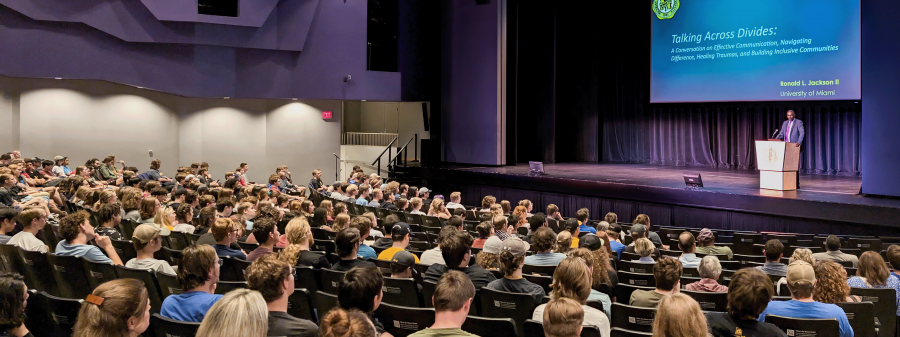
Engagement and Belonging at Michigan Tech recently spearheaded two significant events that emphasize the University’s commitment to advancing inclusive excellence and enhancing accessibility across campus and the broader Upper Peninsula community.

Engagement and Belonging at Michigan Tech recently spearheaded two significant events that emphasize the University’s commitment to advancing inclusive excellence and enhancing accessibility across campus and the broader Upper Peninsula community.
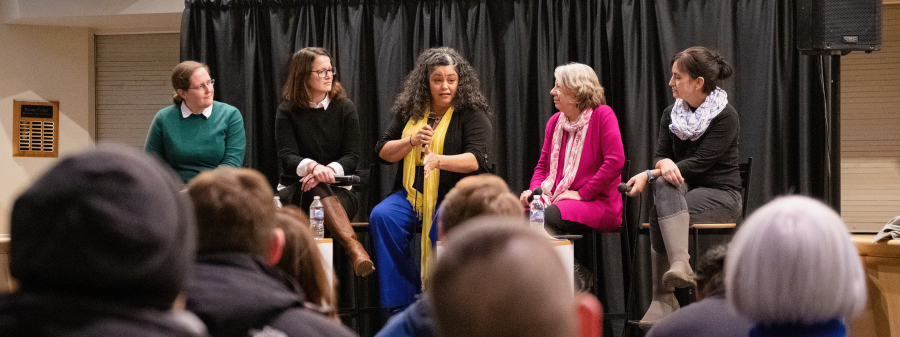
Michigan Technological University is proud to announce the launch of the Bridging Communities Series for the fall 2024 semester. This collaborative initiative brings together departments across campus to offer a wide range of programming aimed at engaging our community and enhancing campus culture.

Engagement and Belonging at Michigan Tech is proud to announce its partnership with the Accessible Keweenaw Initiative (AKI) in hosting the first-ever Upper Peninsula Accessibility Summit (UPAS). This groundbreaking event will take place on September 26 and 27, 2024, at the Rozsa Center for the Performing Arts on the Michigan Tech campus.

Engagement and Belonging is excited to welcome the renowned scholar Dr. Ronald Jackson II to Michigan Tech this fall. Dr. Jackson’s visit is a key part of our commitment to building a more welcoming and supportive campus community. His deep knowledge of identity, culture, and communication will offer valuable perspectives for students, faculty, and staff as we work to create a more connected and understanding environment at Michigan Tech.
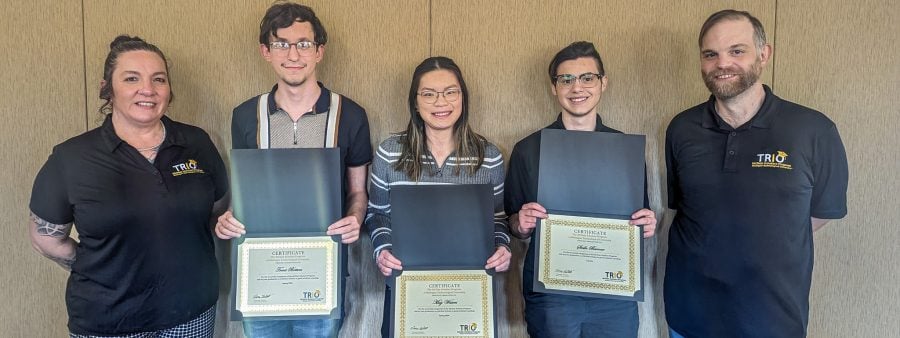
The staff of the McNair Scholars program, along with the Office of Diversity and Inclusion, hosted the Inaugural McNair Scholars Graduation recognition dinner on Friday, April 19, 2024, for this year’s graduating seniors. This first cohort of Michigan Tech’s McNair Scholars were recognized for their commitment to research along with dedication to scholarly activities and achievements.
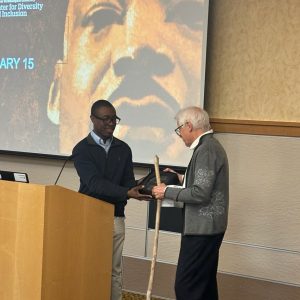
Jacek Borysow, interim physics department chair and professor, has been named the 2024 winner of the Bayard Rustin Award. The National Society of Black Engineers presents this prestigious to faculty or staff who make important behind-the-scenes impacts on campus, especially for underrepresented groups.
“Thank you to the National Society of Black Engineers for this award. Truly, it is the most important award I have ever received. It was given to me by the students and it is named after one of the most outstanding African-American leaders in the movement for nonviolence and civil rights,” said Borysow.
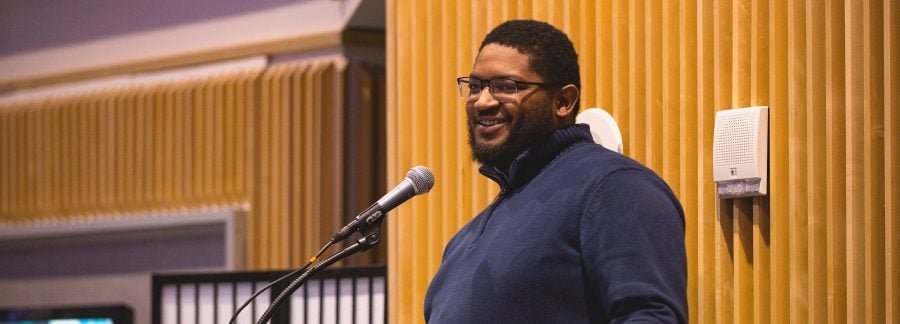
The National Society of Black Engineers (NSBE) named Christopher Sanders the winner of the 2023 Bayard Rustin Award during the 34th annual Martin Luther King Jr. Banquet on January 16. This award, now in its fourth year, recognizes a faculty or staff member at Michigan Tech for their behind-the-scenes impact.
Sanders is the advisor for NSBE as well as the assistant director of the Center for Diversity and Inclusion.
“I am honored and humbled to receive the Bayard Rustin Award from NSBE. Since starting at MTU, our community—and especially our students—have gone out of their way to ensure I feel welcome on campus,” said Sanders.

The Office of the Vice President for Diversity and Inclusion announces the launch of the Sense of Belonging Speakers Series with two virtual panel discussions scheduled for spring 2022. These events gather academic diversity leaders and retention experts to discuss and share proven best practices with Michigan Tech and the wider community.

Ashanté Kindle and Khari Turner will come to Michigan Tech next week to discuss their joint exhibit, Copper Planted Seeds, currently on display at Finlandia University. With “Seeds”, Kindle and Turner seek common ground between the history of the Keweenaw Peninsula and their life experiences as Black American artists. The theme of their exhibit is “sisu,” or human grit and determination, in the face of daunting circumstances.
The summer season in the US includes several holidays celebrated widely across the nation—Memorial Day, Father’s Day, Independence Day, and Labor Day. But do you observe Juneteenth? Have you heard of this day, short for June 19?
Current American history textbooks proclaim Abraham Lincoln’s Emancipation Proclamation on January 1, 1863, as the end of slavery. Truth be told, slavery remained relatively unaffected in many places, most prominently in Texas. It was status quo for slaves well beyond the Proclamation date—they carried on with their lives of bondage and subjugation oblivious to the fact they were legally free. It was nearly two and a half years later, on June 19, 1865, when federal troops arrived in Galveston, Texas, with the news that the Civil War had ended, slavery was abolished, and enslaved people were now free.